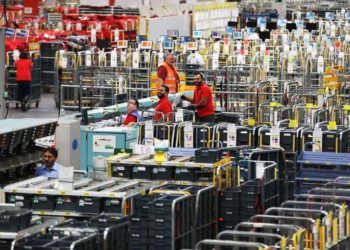UK online shoppers make 87% of their retail purchases online, up from 80% last year, according to Royal Mail’s annual UK report.
The proportion of money being spent online has increased as shoppers look for good value for money. The ability to compare prices and a wider choice of products are the key reasons for shoppers going online as opposed to shopping in-store. On average, shoppers spend £34 on each online transaction.
Use of social media sites to shop online is on the rise. Over one in five (22%) UK consumers has purchased an item after seeing something on social media. Younger shoppers (48%), women (29%) and those living in urban areas (38%) are significantly more likely to have purchased items after seeing posts on social media.
The study also found that men typically spend more online than women. On average, men spent £255 online over a period of three months, whereas women spent £204. Younger shoppers also typically buy online more frequently than shoppers of an older age.
On average, those aged between 18-54 years purchased seven items, compared to six for those over the age of 55 years old, in the same three month period.
When shopping online, laptops are the device most commonly used in the evening, while smartphones are most likely to be used at all other times of the day. Since 2017, smartphone usage has increased in all locations. 78% now use their smartphone for online shopping whilst travelling or commuting, up from 71% in 2017. Almost half (45%) of UK shoppers like to browse online in their free time and 44% of UK shoppers find it cheaper to buy online than in-store.
A spokesperson for Royal Mail said “The growth of online retailing is driving a relentless pursuit of value for money. People continue to look online for the best deals and prices and this is driving the proportion of money being spent online, which has increased for the second year in a row. Retailers of all sizes must ensure they are responding to the ever changing digital landscape alongside trends in online shopping behaviour being led by younger shoppers.”

















































